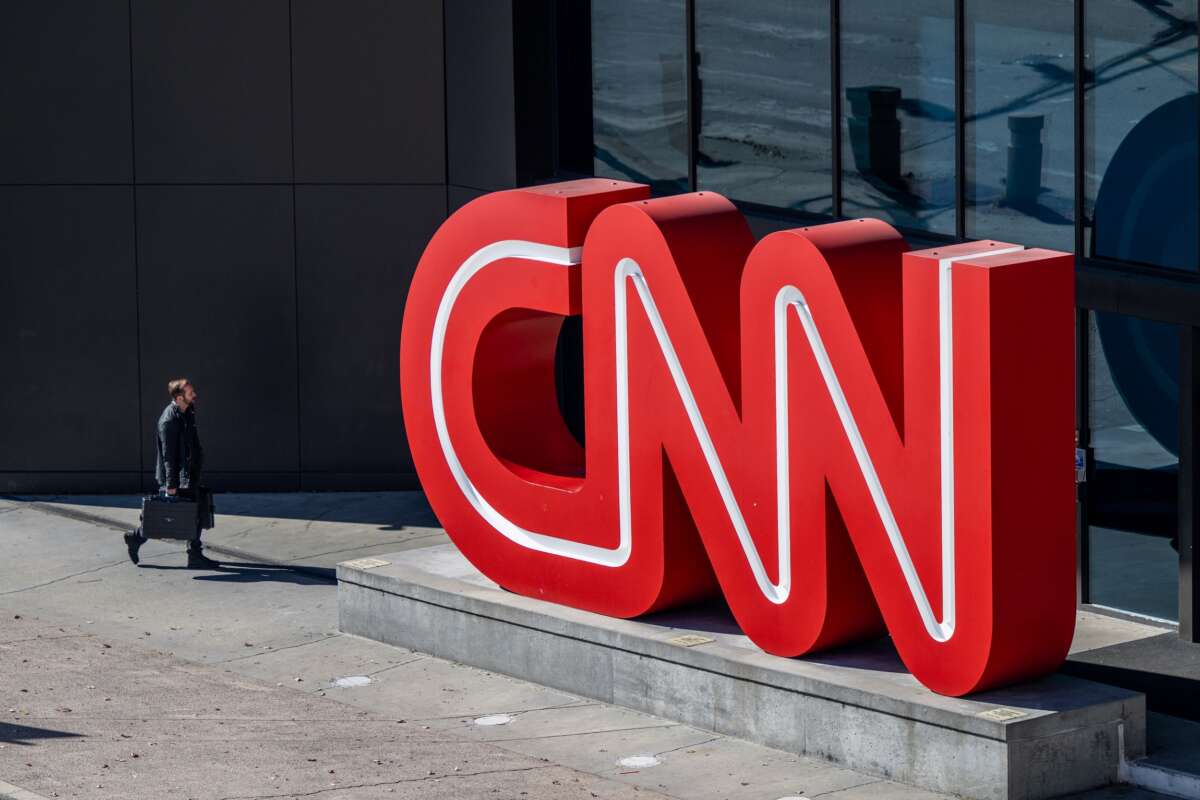Following CNN’s town hall featuring former President Donald Trump on Wednesday night, some CNN reporters have denounced the network’s decision to grant the 2024 GOP presidential contender an hour of airtime to rant about his far right views with little opportunity for pushback.
Although a corporate statement from CNN praised host Kaitlan Collins for asking “tough, fair and revealing questions” and claimed that she “fact-checked” Trump in real-time, the network’s praises were not echoed by pundits and media observers, including some at the network.
“It’s hard to see how America was served by the spectacle of lies that aired on CNN Wednesday evening,” read CNN’s “Reliable Sources with Oliver Darcy” newsletter, published just after the town hall concluded, noting that the former president “unleashed a firehose of disinformation upon the country.”
“A professional lie machine, Trump fired off falsehoods at a rapid clip while using his bluster to overwhelm Collins, stealing command of the stage at some points of the town hall,” the newsletter said.
The newsletter also recognized that the task given to Collins was an “impossible” one and that the network (including CEO Chris Licht) is facing “a fury of criticism — both internally and externally over the event.”
Outside of CNN, the network’s decision to grant the former president a national platform was widely condemned, with many observers noting that Trump benefited greatly from the opportunity to peddle lies in front of a friendly audience of GOP voters in New Hampshire.
“CNN still has a Donald Trump problem,” wrote Alex Sherman, a media reporter for CNBC, adding that “live fact checking Trump in an interview is extremely difficult because he will steamroll most interviewers with a torrent of words.”
“From an event-planning perspective, the setup of the town hall didn’t allow for the best version of facts to be presented. That may be an olive branch for Trump supporters, but it isn’t the best journalism,” Sherman said.
“This thing was madness, total madness. Like giving a microphone to Drunk Uncle and saying: go for it!” wrote author Bill Carter on Twitter.
“This is CNN’s lowest moment as an organization,” wrote journalist James Fallows, former national correspondent for The Atlantic.
“What we saw tonight was a series of extremely irresponsible decisions that put a sexual abuse victim at risk, that put that person at risk in front of a national audience, and I could not have disagreed with it more,”said Rep. Alexandria Ocasio-Cortez (D-New York). “It was shameful.”
David Smith, The Guardian’s Washington D.C. bureau chief, decried the ordeal as a repeat of the mistakes from previous presidential election cycles involving Trump.
During the town hall, we were “flung back in time to the political hellscape of 2016,” Smith said. “Only the second time around, it was somehow worse.”
Smith gave a brief overview of the dangerous statements from Trump that CNN broadcasted to millions across the country:
Trump called a Black police officer a ‘thug.’ He made racist comments about Chinatown in Washington. He described host Kaitlan Collins as a nasty person.’ He made fun of a woman he sexually abused as a ‘whack job.’
“It was toe-curling, not-knowing-where-to-look bad television,” Smith said, adding that “Collins could have been forgiven for thinking her bosses have got it in for her.”
We’re not backing down in the face of Trump’s threats.
As Donald Trump is inaugurated a second time, independent media organizations are faced with urgent mandates: Tell the truth more loudly than ever before. Do that work even as our standard modes of distribution (such as social media platforms) are being manipulated and curtailed by forces of fascist repression and ruthless capitalism. Do that work even as journalism and journalists face targeted attacks, including from the government itself. And do that work in community, never forgetting that we’re not shouting into a faceless void – we’re reaching out to real people amid a life-threatening political climate.
Our task is formidable, and it requires us to ground ourselves in our principles, remind ourselves of our utility, dig in and commit.
As a dizzying number of corporate news organizations – either through need or greed – rush to implement new ways to further monetize their content, and others acquiesce to Trump’s wishes, now is a time for movement media-makers to double down on community-first models.
At Truthout, we are reaffirming our commitments on this front: We won’t run ads or have a paywall because we believe that everyone should have access to information, and that access should exist without barriers and free of distractions from craven corporate interests. We recognize the implications for democracy when information-seekers click a link only to find the article trapped behind a paywall or buried on a page with dozens of invasive ads. The laws of capitalism dictate an unending increase in monetization, and much of the media simply follows those laws. Truthout and many of our peers are dedicating ourselves to following other paths – a commitment which feels vital in a moment when corporations are evermore overtly embedded in government.
Over 80 percent of Truthout‘s funding comes from small individual donations from our community of readers, and the remaining 20 percent comes from a handful of social justice-oriented foundations. Over a third of our total budget is supported by recurring monthly donors, many of whom give because they want to help us keep Truthout barrier-free for everyone.
You can help by giving today. Whether you can make a small monthly donation or a larger gift, Truthout only works with your support.
